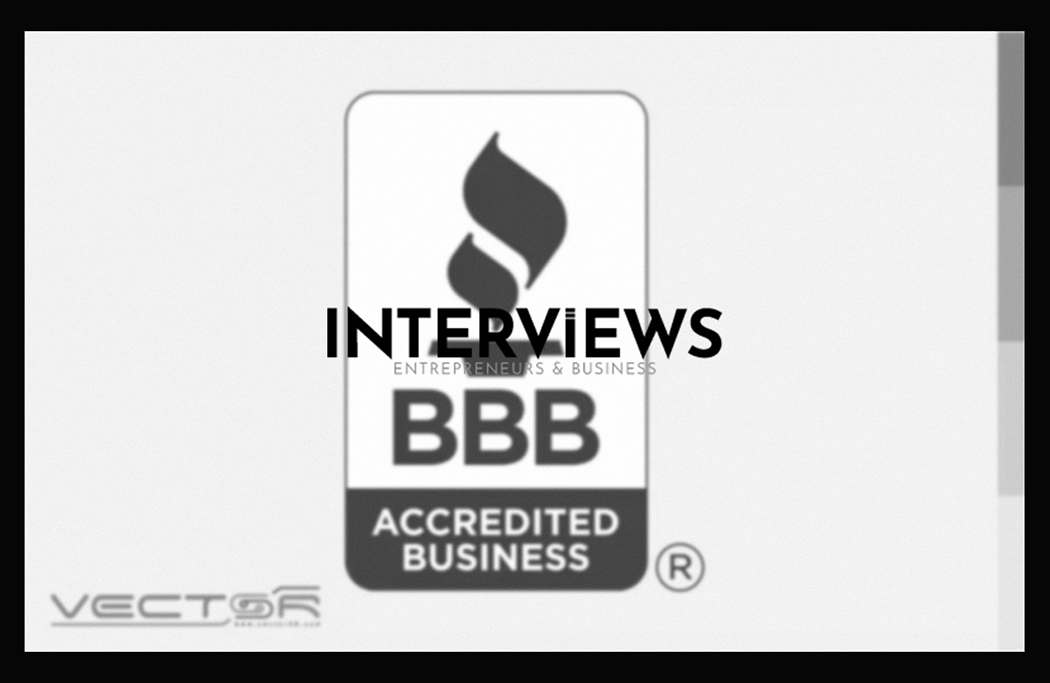Decoding the BBB Accreditation: Is it a Golden Ticket or Just a Badge?
In the chaotic business world, many seek your money. How do you find the honest businesses amid the rest? Here comes the Better Business Bureau, or BBB, with its desired accreditation. But, what is BBB accreditation? Is it a shield against bad dealings, or just marketing noise? Let’s dive in.
BBB Accreditation: Stripping Back the Layers
First off, what does BBB Accreditation mean? It’s like a business waving a flag. That flag says, “We play by honest rules.” The BBB claims it shows customers you act “honestly and with integrity.” They say it provides a “competitive edge” by highlighting “great business practices.” Nice, right? But, let’s dig deeper. The BBB isn’t a government authority. They won’t swoop in to shut down a bad business. The BBB is private. It’s a non-profit organization, like the neighborhood watchdog. They can’t enforce laws. Their power lies in influence. The BBB’s mission? To boost “marketplace trust.” They want consumers to feel secure. How do theyDo this? By being a central hub for business info. They provide business profiles, host customer reviews, and accept consumer complaints. They even offer advice to businesses and consumers. Now, let’s discuss money. The BBB doesn’t run on goodwill. Accredited businesses pay fees. Yes, you read that correctly; businesses pay for accreditation. This money supports the BBB’s goal to promote trust. But filing a complaint is free for consumers. It’s a “pay-to-play” setup for businesses wanting to show they are trustworthy. Where does the BBB get its funds? Mainly from accredited businesses.
Unlocking the Perks: The Benefits of BBB Accreditation
So, why do businesses pay for BBB accreditation? There are solid benefits. First, enhanced credibility and trust. Being accredited is like earning a gold star in ethics. People see it as a sign of trustworthiness. About 87% of accredited businesses agree it boosts credibility. That little BBB seal says, “This business is real.” It helps especially smaller businesses gain credibility. Next, there’s the competitive advantage. In a packed market, it’s tough to stand out. BBB accreditation helps with this. It shows customers you are serious about good practices, which may lead them to choose you . It’s a way of saying, “We are not just good, we are BBB good!” Believe it or not, accreditation might even give a marketing and SEO boost. The “Dynamic Seal”? It’s more than decoration; it enhances online presence. A good BBB rating can improve search engine optimization (SEO). It’s like adding more digital credibility. Beyond public benefits, accreditation opens up BBB resources. These include marketing materials, training courses, and dispute resolution services. Need to improve customer service or handle a complaint? The BBB supplies tools to assist. Networking is crucial in business. The BBB encourages networking and community involvement. Accreditation allows connections with other businesses and participation in community events organized by the BBB. It’s like joining a group focusing on… better business. Oh, and those annual BBB accreditation fees? They might be tax deductible as “Accreditation Dues.” Always check with your tax advisor, but it’s worth considering.
The Price Tag: Costs of BBB Accreditation
Okay, so accreditation sounds good. But what about costs? Brace yourself; it’s not a flat rate. The BBB uses an annual fee model based on your business size. Smaller firms pay less, while big corporations could pay over $1,000 annually. Think of it as tiered fees, like popcorn at the cinema – larger buckets come with larger prices. These fees fund the BBB’s mission. Remember they are a non-profit? Your fees cover accreditation reviews, ongoing monitoring of accredited businesses, and keeping the BBB running its trust mission. Fees differ by local BBB chapters. Each chapter has its own fee structure. What your friend pays in one state may not match your dues in another Let’s repeat: that annual payment is often termed “Accreditation Dues“. Your ticket to keep that accredited status is dependent on maintaining these payments.
Ratings vs. Accreditation: They’re Not Twins
Wait! Ratings and accreditation sound alike, correct? Wrong! They are separate systems in the BBB framework. A business can earn a BBB rating (like A+ to F) without being accredited. Think of ratings as report cards based on available info and how the business interacts with customers, especially complaints. BBB ratings consider factors such as complaint history, how long a business runs, type of business, and its transparency. Accreditation requires meeting specific BBB standards, termed “BBB Standards for Trust.” These standards focus on honesty, transparency, and fair dealings. The major point? A business can have a high BBB rating without accreditation. A strong rating indicates that they conduct themselves well by BBB standards, while accreditation shows a commitment to higher standards in the BBB system.
Decoding the BBB Standards for Trust: The Ethical Blueprint
What are these “BBB Standards for Trust” that accredited companies pledge to uphold? They consist of eight core principles, guiding ethical business behavior: 1. Build Trust: Establish and maintain trust with customers. 2. Advertise Honestly: No misleading claims or shady tactics allowed. Be honest in ads. 3. Tell the Truth: Be transparent in all representations. No half-truths. 4. Be Transparent: Share policies and relevant info openly without hidden agendas. 5. Honor Promises: Fulfill commitments. If issues arise, make them right. 6. Be Responsive: Address customer concerns promptly and professionally. 7. Safeguard Privacy: Protect customer data very carefully. 8. Embody Integrity: Operate ethically and honestly in every deal. These standards form the backbone of BBB accreditation. Businesses seeking approval are examined against these principles.
Non-Accredited Businesses: Not Always the Villains
Spotting a company that *isn’t* BBB accredited may cause concern, but avoid jumping to conclusions. A lack of accreditation isn’t a red flag. Many ethical businesses choose not to participate for various reasons. They may feel they have solid brand recognition or they see no value in fees. Perhaps they simply haven’t applied yet! A non-accredited business might have simply opted out without reason to alarm customers or raise unnecessary doubts about trustworthiness. not applied, or they didn’t meet the BBB’s standards at the application time, or they simply chose not to participate. It’s a choice. The BBB still reports on non-accredited businesses. They gather public info and feedback to create ratings and profiles for all types of businesses. When judging trustworthiness, consider other trust factors like Google or Yelp reviews. Good consumers use multiple sources, not just one.
BBB’s Power Play and Its Limits
The BBB is not a superhero. They have no legal authority or enforcement powers. They can’t shut down a business or take anyone to court. Think of them as a reputation and mediation service. They mediate disputes between consumers and businesses. They encourage resolutions with their platform. They can’t *force* a business to change. However, they can influence consumer trust. A bad rating can tarnish a business’s reputation. It can drive away customers. That pressure is a powerful tool. Interestingly, the BBB works with law enforcement. They share information and issue alerts about scams. They help agencies fight fraud indirectly. You can think of the BBB as a review website, not unlike Yelp. Consumers complain, and businesses respond. It’s a platform for accountability and feedback.
Filing a Complaint: Your Consumer Voice
Feeling wronged? The BBB allows you to voice your grievance. Best part? Filing a complaint is free for consumers. It won’t cost you anything. The BBB acts as a mediator. They handle complaints about marketplace issues. They try to resolve problems between consumers and businesses. However, manage your expectations. Complaints don’t guarantee refunds or resolutions. The BBB can push for fairness, but they can’t *make* a business give your money back. Businesses are not legally obligated to respond to complaints. But complaints matter. They can affect a business’s reputation. Many businesses want to maintain a good rating. They will address complaints to keep their record clean. For them, a good BBB reputation is valuable.
The Accreditation Process: Getting the BBB Seal
Want your business accredited by the BBB? Let’s look at the process. It starts with an application on their website. This goes to the BBB’s Accreditation Department for review. They will do a background check and verify your information. This includes vetting against those 8 BBB Standards for Trust. The BBB then recommends to their Board of Directors, who approve or deny your application. Expect to wait. The whole process can take a few days to weeks. Sources suggest at least two to three weeks, but it varies by region and workload. You may hear back within 21 days if they have questions. One key detail: your business must operate for at least six months before applying for accreditation. The BBB wants to see a history.
Beyond the BBB: Checking Business Legitimacy Yourself
The BBB is useful, but not the only way to gauge legitimacy. Here are things to check: * Online Presence: Does the business have a professional-looking website? Check for contact details, product/service descriptions, and a solid “About Us” page. Look at their social media presence. Active profiles are often a good sign. * Contact Information: Look for a physical address and phone number, not just a PO box or general email. Legitimate businesses are usually clear about their contact details. * Business Registration and Licensing: Verify business licenses and registrations. Check with your Secretary of State’s website to confirm a company’s status. This ensures they operate legally. * Customer Reviews: Search online review platforms like Google Reviews and Yelp. Look for patterns in feedback. * Payment Methods and Terms: A legitimate company has clear Terms & Conditions and a Privacy Policy on their website. These often verify their registered details.
Does the BBB Still Matter? The Verdict
With digital review sites everywhere, is BBB accreditation still relevant? For businesses, it can offer potential benefits, especially in building customer credibility. Many still view BBB accreditation as a sign of trust. For consumers, the BBB is still a resource for checking profiles, reading reviews, and filing complaints. While not the final authority, it’s a recognized name in business reputation.
BBB Accreditation in Specific Industries
Interestingly, BBB accreditation offers value in certain sectors. For law firms, a high BBB rating is an asset, providing clients with quick reliability assessments in trust-based fields. Similarly, in the moving industry, known for scams, choosing a mover with a strong BBB reputation offers peace of mind.
Why Businesses Might Say “No Thanks” to BBB Accreditation
Despite benefits, many businesses skip BBB accreditation. Why? It often comes down to key factors: * Fees: Accreditation costs money. Annual fees can deter smaller businesses with tight budgets. * Perception of the BBB: Some view the BBB as biased, seeing it as “owned by businesses.” This raises skepticism about its objectivity. The BBB *is* funded by member businesses, which some find troubling. Ultimately, the choice to pursue BBB accreditation is strategic for each business. It’s not perfect, and companies that opt-out aren’t automatically shady. It’s just one part of building business reputation and consumer trust.





